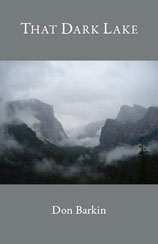Nature Boy: A Review of Edward Abbey
Review of Beyond the Wall: Essays from the Outside by Edward Abbey
Holt Publishing, 1984
Edward Abbey--who reflects not only a personal need for expatriation and that delicate hint of misanthropy in my demeanor --has subdued Bruce Springsteen’s place in my heart. Abbey’s Beyond the Wall: Essays from the Outside seems, at first glance, easy to dispense with as another example of environmentalist earth-mother literature. But for one sufficiently sensitive to the nuances of writing in this genre done well, a reader is able to see like Abbey, feel like Abbey, and travel with Abbey through “Eden at the dawn of creation.”
In Abbey’s essay collection, notwithstanding its focus on the cascade of nature's plethora, one can see signs Neil Postman and Marshall McLuhan and their ideas on how the tools of technology have red-lined the natural tools of society: humanity’s own brain power and its ability to use that power having become dependent on a technology of effortlessness.
To be fair, Abbey had me harboring some guilt of my own as I took a distinctly indoor pleasure in this book of the outdoors. Abbey travels natively and minimally, carrying only what is necessary to survive, not to live comfortably in a technologically-dictated world. He brings water, careful observation, and a decisive love for a rough and unlovable desert region, reminding readers that nature is intended for all, not merely the affluent who purchase land only to destroy it by building million-dollar homes and strip malls. As McLuhan says, “affluence creates poverty.” Abbey’s desert wasteland exemplifies in its unique way that sad fact of modern civilization.
Much like Neil Postman’s Technopoly, Abbey’s Beyond the Wall illustrates in tender detail how we have quite literally given up everything that gives meaning and direction to this ephemeral, all-too-rapidly lived life, clawing, like kittens, at the conveniences technology dangles in front of us. Abbey forces his readers to question their decisions, their comfy cubicle chairs, their guaranteed health insurance and to get up and let “the rattlesnake and the screech owl amuse [their] reverie” and do something that does not leave them just emptier. Emptiness--even in a barren desert--is not inevitable, and maybe readers need Abbey to remind them of this. In Abbey’s desert, it is the fact of this isolation—expatriation, as he terms it--that leads the imagination along to affluence of mind instead of bank account.
Dare I say that I find myself envying Abbey? How he is able to find perfection in nothingness, in what appears as miles piled upon miles of destitution. Having emphatically placed himself in a location from which anyone else would willingly die to escape, he is happy. He is at peace as a “desert rat.” I find myself secretly desiring to hitchhike back to the farm between a cornfield and a horse ranch and to relish what I personally had forsaken for so long.
Moreover, his keen sense of specificity and willingness to violate his readers’ comfort zones let him write with wit, perceptiveness, peacefulness, and a surprisingly brusque sarcasm—quite the change from your typical earth-mother literature! If not because his inspiration or his sincerity, then for his wit and wisdom, one must appreciate Edward Abbey and dare to trek “beyond the wall of the unreal city, beyond the security of fences . . . beyond the rage of lies that poisons the air . . . [to] another world waiting for you, . . . the old true world of deserts, mountains, forests, islands, shores, the open plains. Go there. Be there. Walk gently and quietly deep within it.”
 Review of
Review of  Reading Charlotte Garrett Currier’s Shadow and Light: A Retrospective left me conflicted: Had Ijust finished a book of poetry or listened to a Charles Auguste De Beriot movement? Currier incontestably has a vigilant ear for the metrical line unit, creating impeccable rhythms, balancing the traditional formalities of meter and rhyme scheme. Her work is a unique, eye-pleasing integration of extant linguistic idiosyncrasies with avant-garde typography. Perhaps it is fortuitous that I do not have to answer my question of whether Currier writes poetry or composes music. As Dylan Thomas once offered, “Poetry is what makes me laugh or cry or yawn, what makes my toenails twinkle, what makes me want to do this or that or nothing.” At heart, the intent of poetry is to make the audience feel, and feel deeply, and Currier, through this highly metrical almost-memoir, certainly reminds us what it is to wholly feel—whether we wish to be so reminded or not.
Reading Charlotte Garrett Currier’s Shadow and Light: A Retrospective left me conflicted: Had Ijust finished a book of poetry or listened to a Charles Auguste De Beriot movement? Currier incontestably has a vigilant ear for the metrical line unit, creating impeccable rhythms, balancing the traditional formalities of meter and rhyme scheme. Her work is a unique, eye-pleasing integration of extant linguistic idiosyncrasies with avant-garde typography. Perhaps it is fortuitous that I do not have to answer my question of whether Currier writes poetry or composes music. As Dylan Thomas once offered, “Poetry is what makes me laugh or cry or yawn, what makes my toenails twinkle, what makes me want to do this or that or nothing.” At heart, the intent of poetry is to make the audience feel, and feel deeply, and Currier, through this highly metrical almost-memoir, certainly reminds us what it is to wholly feel—whether we wish to be so reminded or not.